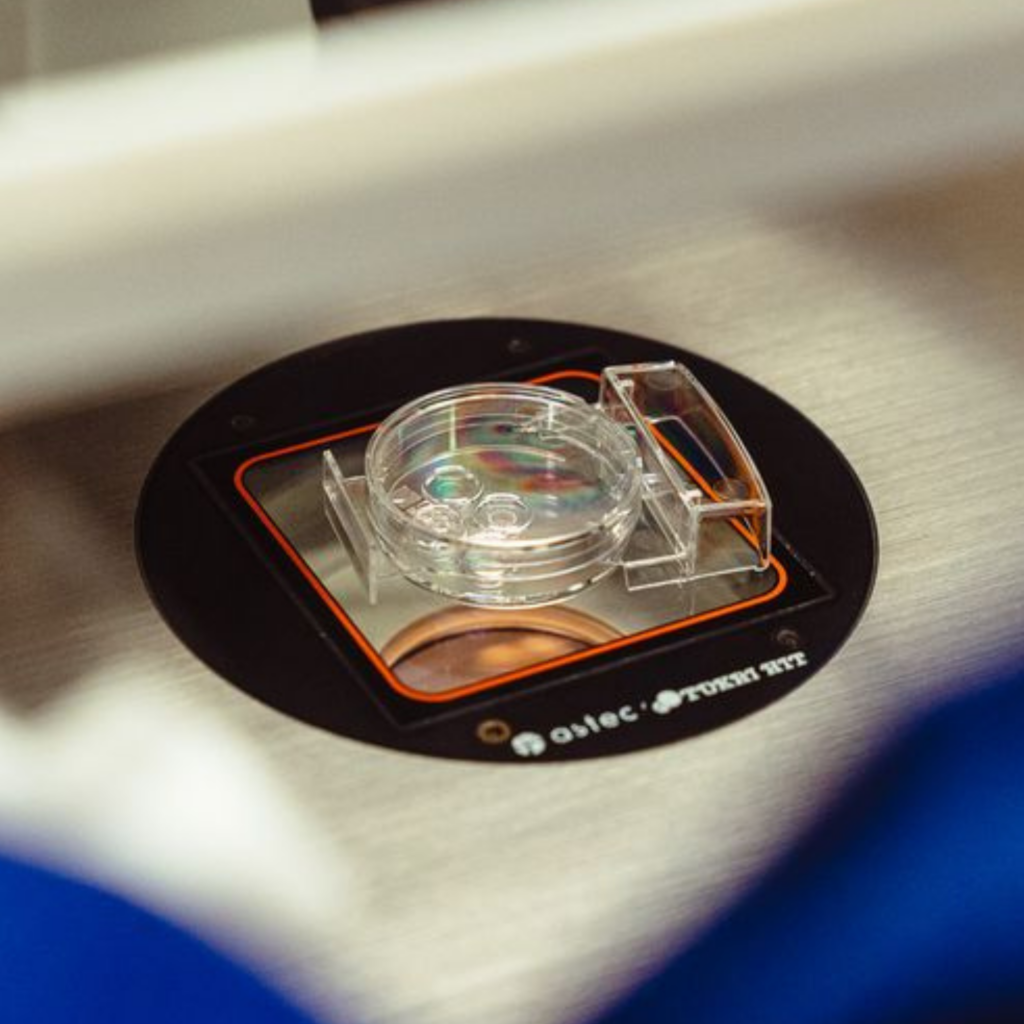
Start your fertility journey today
I am open to see patients face to face at Bella Vista, or via Telehealth
“I pride myself on helping couples move on beyond fertility treatment, whether it’s been successful or not, and helping them continue on making the most out of life.”
– Dr Monique Atkinson





If you have had trouble conceiving naturally, you may benefit from having some fertility treatment. There are many types of fertility treatment available each ranging in how invasive, how much time they take and how costly they may be.
Ovulation tracking describes us identifying, with blood tests and ultrasounds, when you are most likely to fall pregnant naturally. The egg that you release (ovulate) is only able to be fertilised for around 24 hours. Sperm only survive for up to five days. So getting the timing right with sexual intercourse is paramount to optimise the chances of conception.
If you have an irregular menstrual cycle, you may not be ovulating reliably. If you are not releasing an egg each month, you are not having a regular chance of falling pregnant, regardless of all the other strategies you may be trying. Ovulation induction involves taking medications, either orally or via injections, to stimulate follicular development. You have blood tests and ultrasounds performed to track the development of the oocyte so the timing of sexual intercourse can be guided to occur just prior to ovulation, to optimise your chances of falling pregnant.
For some couples challenges during sexual intercourse, such as erectile or ejaculatory dysfunction, or significant pain, are a barrier to conceiving. Intrauterine insemination is treatment which involves placing an ejaculated, prepared semen sample into your uterus (womb) via a thin catheter being passed through the cervix (neck of the womb). It may be performed while tracking a natural cycle or in conjunction with ovulation induction.
IVF and ICSI are two assisted reproductive treatments where fertilisation occurs in vitro (in a dish in the embryology laboratory). IVF describes where fertilisation is achieved after placing a semen sample with an oocyte (egg) and allowing the sperm to ‘naturally’ fertilise the oocyte. ICSI achieves fertilisation by the embryologist selecting an individual sperm and injecting it into the oocyte.
Each type of treatment initially requires you to use FSH (follicle stimulating hormone) injections to stimulate multiple eggs to develop. During this time of around 1 to 2 weeks, the development of your eggs will be monitored with blood tests and ultrasounds, performed every few days. Once ready, you will be scheduled for an egg collection. This is a 5 to 10 minute procedure where a needle is passed into the ovaries and suction used to collect your eggs. IVF or ICSI is then used to fertilise your eggs with sperm in the laboratory.
Over the next 2 to 5 days the development of your embryos is monitored. Your best embryo is selected for transfer into your uterus – a simple procedure where a thin catheter is passed through your cervix and the embryo deposited under ultrasound guidance. Any additional good quality embryos may be frozen for later use in a frozen embryo transfer cycle. You will use progesterone medication to support embryo implantation for the next week and a half, prior to performing your pregnancy test.
PGT of your embryos involves taking a biopsy from your embryos created during an IVF or ICSI cycle. The biopsy is sent for testing of the chromosomes (PGT-A, PGT for aneuploidy) or for testing individual genes (PGT-M, PGT for monogenic disorders). You may choose to do this testing if you are known to have a genetic disorder or if you wish to avoid conceiving a pregnancy effected by aneuploidy, such as Down’s Syndrome (Trisomy 21).
There are many reasons why an individual or couple may choose to use donor egg or donor sperm to build their family. Your donor may be someone that you know, or an anonymous donor whose gametes have been stored in an egg/sperm bank. During a cycle using donor eggs or sperm, you will be supported by myself, as well as fertility nurses and a fertility counsellor to navigate the legal and ethical considerations you may encounter along the way.
You may be unable to carry your own pregnancy, most frequently due to having a medical condition that precludes a healthy pregnancy, or uterine anomalies that you may have been born with. If this is the case, you can have a surrogate carry your pregnancy on your behalf. An embryo is created using your eggs and sperm (or a donor’s, if applicable) and transferred into your surrogate’s uterus.
Some conditions such as cancer or autoimmune diseases require you to have treatment which can damage your egg reserve or sperm supply (gonadotoxic treatment).
As a CREI subspecialist, I can work with you and your primary treating team to arrange preservation of your eggs or sperm prior to proceeding with your gonadotoxic therapy.
For women, you may be able to collect and freeze mature eggs (through a 2 week process similar to the first stage of an IVF/ICSI cycle) or freeze ovarian tissue (through a laparoscopic surgical procedure). For men, you may be able to freeze an ejaculated semen sample, or a sample collected using a needle placed into the epididymis or testis.
Your fertility preservation often needs to proceed urgently to allow you to continue with treatment so please call my rooms to discuss appointment scheduling if this is the case.
Find out more on oncofertility options.
We offer a full spectrum of reproductive health care services for all our patients.

About 80% of couples conceive within the first six months of trying. If you've been trying for 6-12 months without success, it may be time to consult a fertility specialist.

Struggling to conceive naturally? There are many fertility treatments available, varying in invasiveness, duration, and cost. Whether it is by using medication, IUI, or IVF, we can help find the right path for you.

Planning a family is a big decision and it is important to be well informed about your decision to freeze your eggs.

I have held a passion for reproductive medicine for over fifteen years. I am humbled by the trust my patients place in me to be part of such a significant stage in their life.

I am open to see patients face to face at Bella Vista, or via Telehealth

Dr Monique Atkinson © 2024 / All Rights Reserved